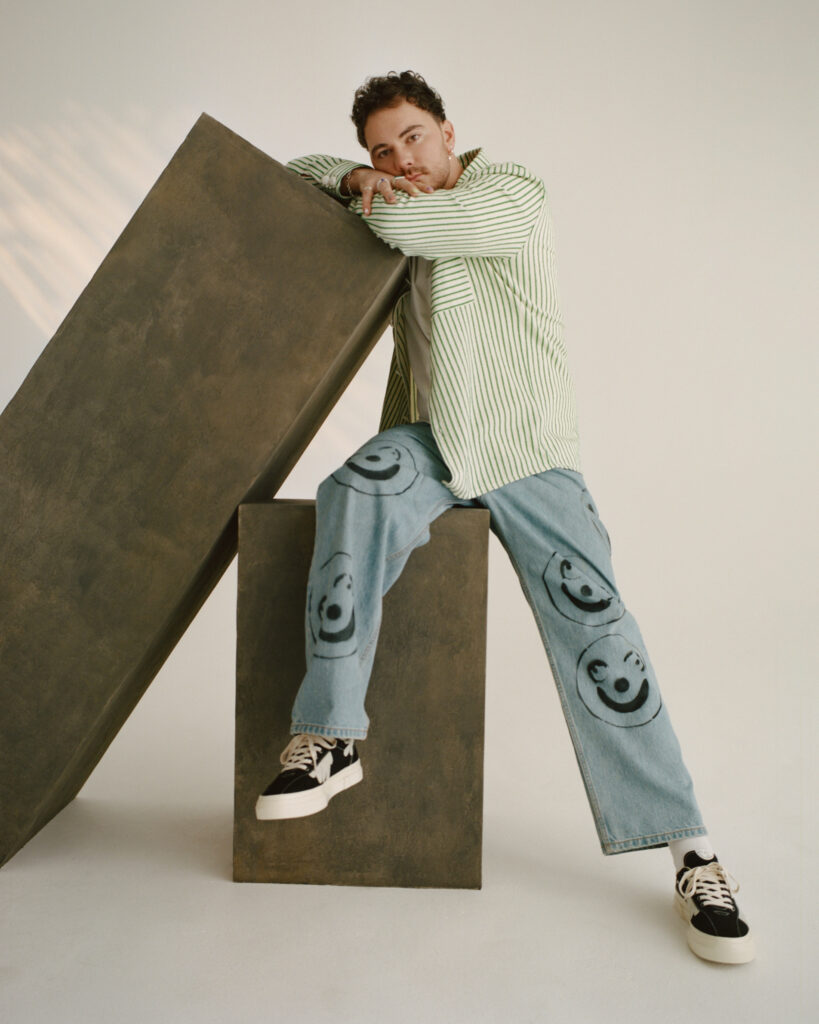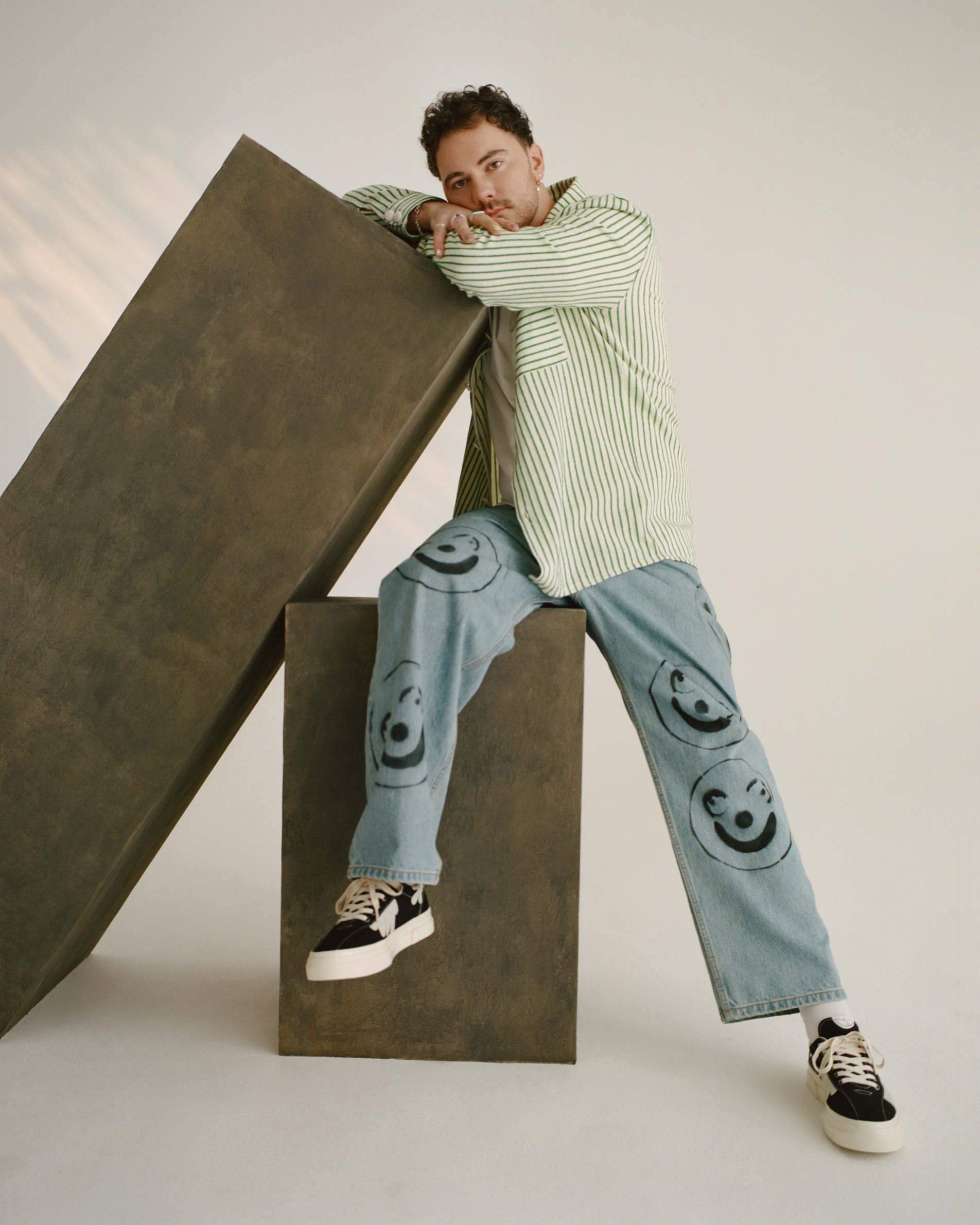When we think of victory, it’s easy to call to mind sweeping battles, large-scale triumphs, and glitzy award shows. Less common—but equally important—are the victories that, while not making up the pages of history books, make up our everyday lives. Viral singer-songwriter Cian Ducrot’s debut album, Victory, is a reminder to celebrate these small wins alongside the larger ones. The Irish instrumentalist bares his own experiences of struggle and success across the album’s 14 deeply felt, emotional tracks, including hit singles ”I’ll Be Waiting” and “All For You.” Bolstered by his signature raw vocals and fearless lyricism, the rising artist’s introductory project is a powerful debut that demonstrates a musical sensibility beyond his years.
But despite his natural pop prowess, Ducrot’s career almost went in a very different direction. The 25-year-old artist grew up in Cork, Ireland, surrounded by music—his mother is a classical musician and flautist. For a while, he was on track to follow in her footsteps, earning a prestigious full scholarship to London’s Royal Academy of Music to study classical flute. It was during his college years that he fell in love with writing and producing music—and decided to abandon his classical training to pursue a career in pop. It was a big risk, but one that’s paid off tenfold.
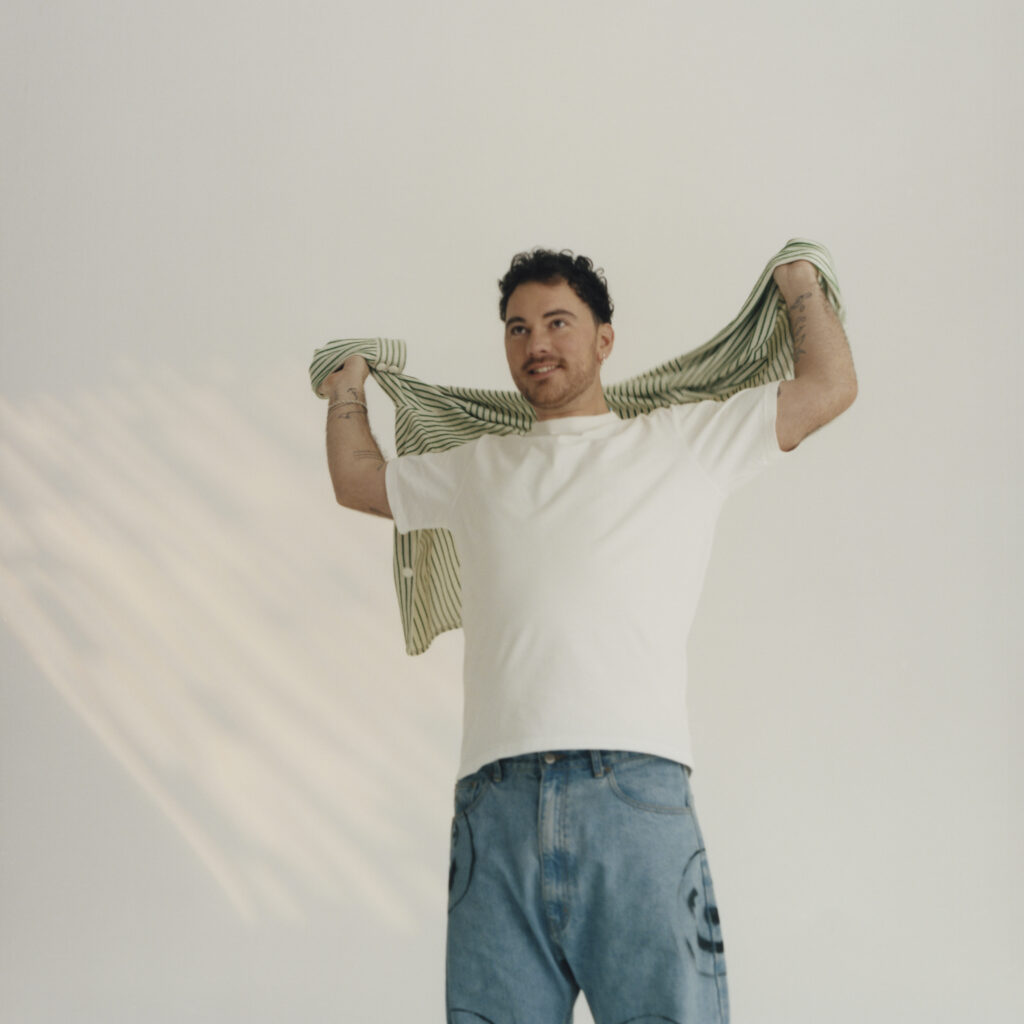
Since the release of his debut mixtape, Started in College, in 2020, Ducrot’s career has advanced at breakneck speed, from signing with Interscope to supporting Ed Sheeran on tour and even embarking on his own headlining tour across North America and Europe this year. Creating Victory offered a chance for the flourishing musician to slow down and reflect on how far he’s come.
“It’s sometimes hard to take in your achievements, things that you would’ve only dreamt of doing when you were a kid. And when you get there, it’s never enough. You’re constantly in such a fast-paced world [where] everyone’s just wondering what the next thing is, and it’s very hard to sit and be like: this moment right here is a victory in itself,” he shares.
The tracks in Victory don’t shy away from weighty subject matter, recounting hardships of loss and abuse, revisiting heartbreaks, and redefining masculinity. Ducrot’s palpable emotion draws the listener in, while memorable hooks and stirring choruses on tracks like the bittersweet “Everyone Who Falls In Love (Has Someone Else They’re Thinking Of)” and moving tribute “Part of Me” linger well beyond the first listen. Tying the album together is the hopeful message that no matter what you’ve been through, you can emerge victorious. Now that’s a sentiment worth celebrating.
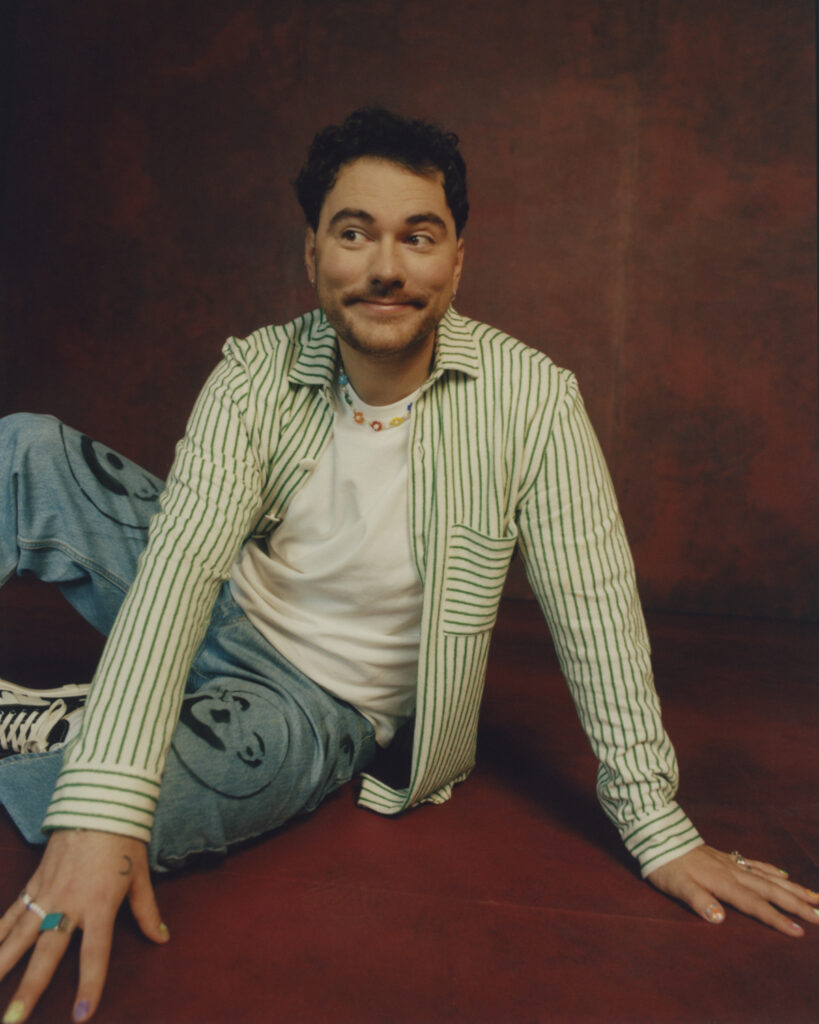
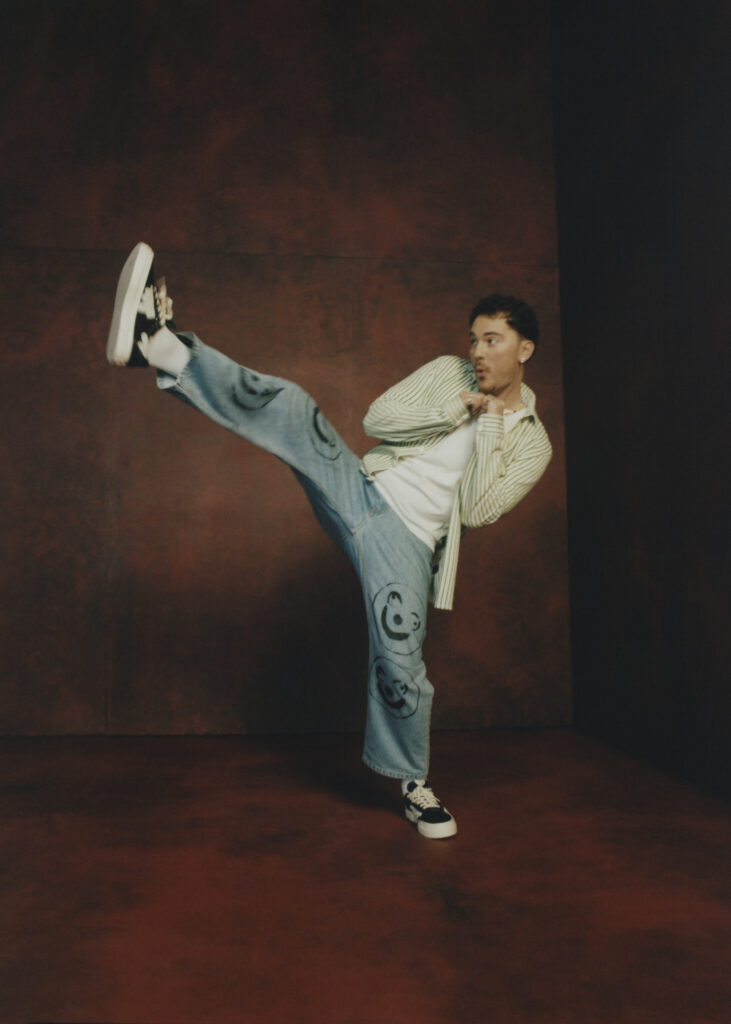
Below, Ducrot talks with VMAN about early musical influences, crafting Victory in Paris, working with SZA, and more.
VMAN: When did you first start being interested in making music? What was that sort of initial spark for you?
Cian Ducrot: I think it was pretty immediate for me. As long as I can remember, it was something that I wanted to do—because my mom was a professional musician, so there was no sign that it wasn’t a possibility. And I loved music straight away. As far as what point I realized I was going to be a songwriter or an artist, I guess that came with discovering new avenues of music and new avenues of what you can do within that field.
VMAN: Did growing up in Ireland influence your music or your artistry in any way?
CD: Yeah. It definitely did, because there’s a huge busking culture and a massive sort of pub-gigging culture as well—which I don’t think you really have in many other places in the world. You go to Ireland and you go to any town, or to the main cities, and every day of the week you’ll have buskers performing at every corner and every pub. You’ll have musicians playing and gigging at all times of the day. On the weekends you go and watch cover bands and musicians performing instead of going to clubs and stuff. It’s definitely quite a musical country, and the culture there is very music- and songwriter-oriented. That’s definitely something that influenced me, one hundred percent, in terms of the music that I make and the path that I ended up going down.
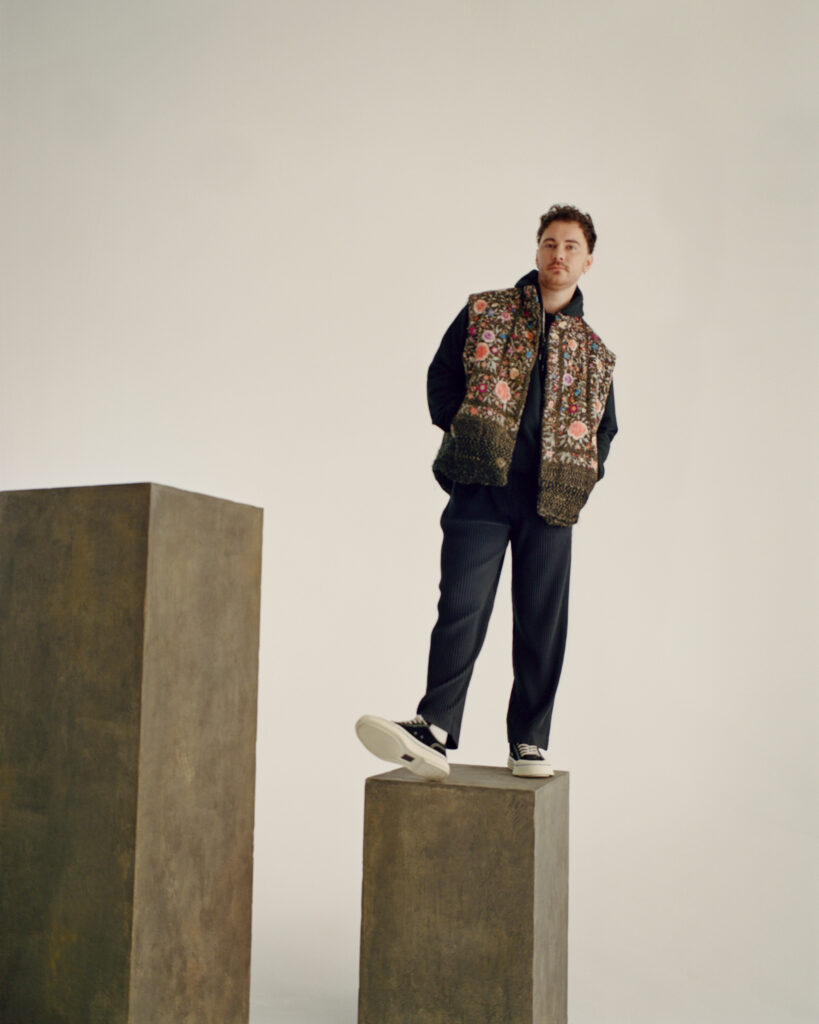
VMAN: Who were your earliest influences musically? What were your parents playing around the house, or what were you into in your formative years?
CD: What was around the house was a lot of classical music for me growing up. So that was something that I obviously was very influenced by, fell in love with, and spent a lot of time surrounded by. But I also discovered a lot of music through my older brother, a lot of rock and metal and punk. I got into a big phase of that as I was a kid—I was skateboarding and all that stuff—and I was in bands with my brother. Then I discovered Michael Jackson and Eminem around the same time, and they opened up the world of more commercial music for me. I fell in love with that. I also started taking singing lessons in school, where I was doing musical theater, and I remember being exposed to early music by The Script. That’s when I started to really get into songwriting.
VMAN: Let’s pivot to your debut album. What was the process of creating Victory?
CD: The timeframe for making the album was quite short. I was on tour at the same time, so I think I probably had two to three months to properly sit down and fully write the songs, and get the album done and complete. The time constraint definitely helped because I knew I had a deadline. I knew I wasn’t going to go off somewhere and write 500 songs and choose my favorite 15. I was just going to write the songs that I really loved, that I really wanted to write. […] But the bulk of the album was made in Paris with a producer there, Tristan Salvati, who’s an amazing French producer and who I was a really big fan of for a long time. Paris is also where my mom grew up and where my grandfather’s from. I went there on a weekend and it made me cancel all my other plans for the album. I just said, I’m going to stay in Paris and I’m going to do it here, because it just feels right, and I think I’ll be able to get the songs that I really want to write out of me if I do them here. So that’s what I did, and that’s where it really came together. After a few weeks there I was like, okay, we’ve got something here that I’m really happy with and proud of, and it feels like my album.
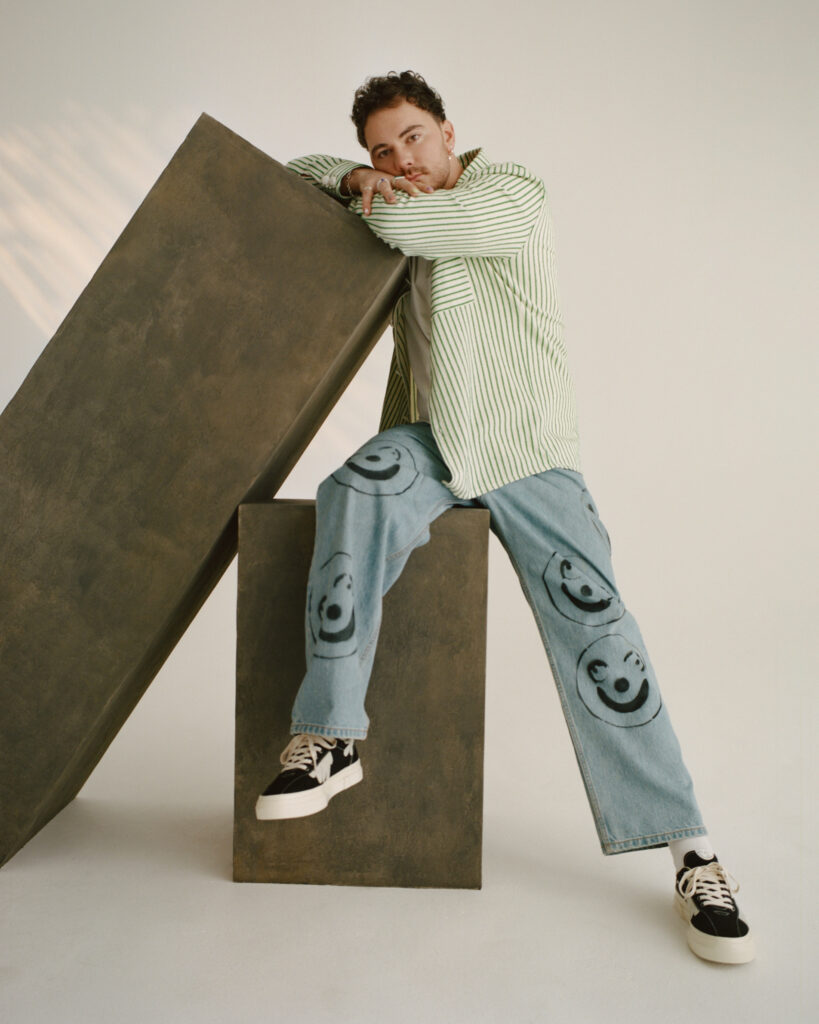
VMAN: What are some of the recurring themes or narratives that you’re exploring in Victory?
CD: I did a small acoustic tour playing for people who purchased the album, and it was really special getting to play the songs acoustically. I decided to divide the show into three sections, which were love, family, and friends, and I think those are the three overarching, main themes of where the songs go or who they’re about. It’s a lot about my life, about my childhood, things that I’ve been through, places I’ve gone, and stories from my mom, my brother, and my stepdad. […] But also it’s a first introduction to the world, who I am and where I come from and the things that I’ve been through that make me who I am today. No matter how much we don’t want to let the past define us, I think the past does define us. It is what creates us. Whether it makes us who we are in the future, I don’t know.
But I think it’s kind of a storytelling of like, here’s the best way that I can describe myself, by playing songs that show what my life was about for the last 10, 25 years—whether that’s my childhood or my teenage years, or recent situations I’ve had with friends or loved ones, or family and friends that I’ve lost. And [there are] reflections on those times now as I’m older and get to look back, but a lot of it is also looking at my life and where I’ve come to now and how grateful I am for where I am now. It’s sometimes hard to take in your achievements, things that you would’ve only dreamt of doing when you were a kid. And when you get there, it’s never enough. You’re constantly in such a fast-paced world [where] everyone’s just wondering what the next thing is, and it’s very hard to sit and be like ‘this moment right here is a victory in itself’. And I’m just really happy to be here.
VMAN: SZA invited you to help write the upcoming deluxe version of her 2022 album SOS. I’m curious how that came about, and if there’s anything you can share?
CD: I mean, it was a crazy crazy thing to be asked. SZA’s obviously an amazing, one-of-a-kind, generational artist that I’m a huge fan of. She kind of out of nowhere started following me and commenting on my stuff—and then one day she DMed me on Instagram and was like, ‘When are you going to be in America?’ I was like, ‘Oh, I don’t know, maybe this month or this month.’ And then she was like, ‘I would love for you to come over and help me finish writing my album.’ It’s like—I don’t think you need my help, but I’ll come over.
So I went and I spent a day in the studio with her, which I think was the day before she had to hand in her album, which is absolutely nuts. Then I didn’t really think anything of it—I was just like, this is a really cool experience and I’ll never forget going to the studio. As far as I know, the song might make it onto her deluxe. But to be honest, I was just stoked to meet her and speak with her, and get to share a moment of making music together. If the world gets to hear it, that would be epic.
VMAN: Beyond Victory, what’s next for Cian Ducrot?
CD: Obviously doing a second album would be super cool. More touring, selling out more tours. I love all the stuff that I’ve been doing now: playing headline tours, playing festivals, and even being able to do intimate shows acoustically. It’s super nice connecting with fans in a new way. I think I’ll just be continuing to do what I’m doing, but hopefully, the scale gets bigger and bigger and I’ll be doing all the stuff that I’ve always dreamt of doing with bigger venues, awesome collaborations, and just making more music and working with really cool people. I’d love to go across all kinds of genres as well—just try different stuff, see how it goes, and have fun.
This interview has been edited and condensed for clarity.
Discover More
